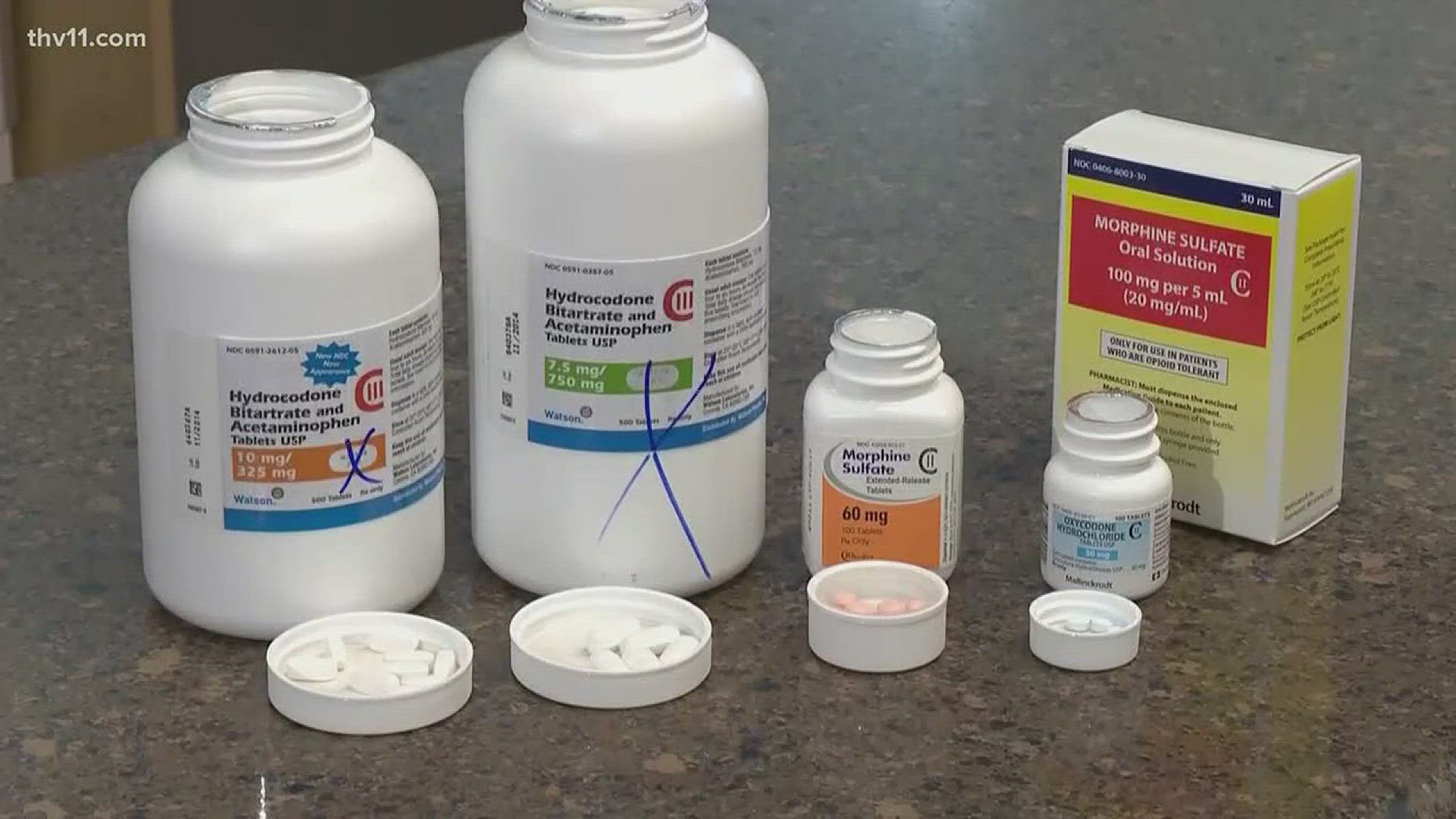LITTLE ROCK, Ark. (KTHV) -- On Thursday, President Donald Trump declared the opioid crisis the country is facing a public health emergency.
That isn't the same thing as the national emergency the president promised to announce in August. A public health emergency doesn't free up additional funding, but allows existing funding to be redirected.
In 2016, the opioid crisis claimed the lives of nearly 65,000 Americans, including Scott Doerhoff's son, William. Doerhoff said the president's actions Thursday and the actions of Congress thus far aren't going to prevent the next 65,000 deaths.
"Signing a piece of paper? How many pieces of paper have been signed already? How many speeches have been given already?” Doerhoff asked.
His son William died as a result of a drug overdose one year ago on the University of Arkansas campus in Fayetteville.
"Part of the disappointment I've had in Donald Trump, or President Trump, is that he's approached this very lackadaisical relatively to how he campaigned on this,” he said.
But before jumping to conclusions about Doerhoff's political stance, you should know, he was a big supporter of then Republican candidate Trump.
"My son was still alive when President Trump started his campaign," he explained. "We were big supporters of him because he was one of the few candidates that talked about the opioid epidemic and illegal heroin flowing into the borders."
But several months later, he would find himself on the offensive line of the fight.
"More than anything else, I have now assumed the position of holding everyone accountable, including myself. My wife and I cannot be held any more accountable than we are literally every minute of every day of our lives, and will be for the rest of our lives. Our son was certainly held accountable for his mistakes with drug use,” Doerhoff said.
Doerhoff became disheartened after learning that the president's nominee for the head of the Office of National Drug Control Policy, House Representative Tom Marino (R-PA), was the chief advocate for the bill that weakened the DEA's authority to stop companies from distributing opioids.
"I think their actions prove that while they'll say one thing in public, behind the scenes other things are happening," Doerhoff said. "Those other things are absolutely to the detriment of children, families, communities, and it just blows your mind."
State Drug Director Kirk Lane said it's a "complex problem" that takes working together. Lane said while "a lot" is being done, "there's still more needed" to be done.
"It will take more. It will take a lot more, and it will take buy in from all aspects of our society," Lane said.
This weekend, his office and dozens of others will host Arkansas Take Back, which is a safe way to dispose of old medications.
"We are at 118 tons that we've disposed of since 2010, which is a lot. To kind of give you an idea: 25,000 pounds of prescription drugs is roughly two tractor trailer loads,” Lane said.
Doerhoff said that program is one way he can see and really feel people working to reverse this epidemic. But the father said he'd like to see drug companies held accountable for the epidemic.
"It's not enough to sign a bill or stand up and give a speech," Doerhoff said. "You've got to back it up with an action. I can tell you, Congress and the president both have the ability to put a stop to this opioid epidemic. They can do it today with tough legislation.”
In a perfect world, what does Doerhoff believe would be the right way to tackle this epidemic?
"The first thing that needs to happen is there needs to be an honest discussion with our country's leaders and [have] them acknowledge where this epidemic is coming from. If they don't want to accept that this is coming from the oversupply of legal narcotics, if the political leaders don't want to acknowledge that, they shouldn't even be at the table," he said.
For more information on how you can help combat the opioid epidemic, click here.

